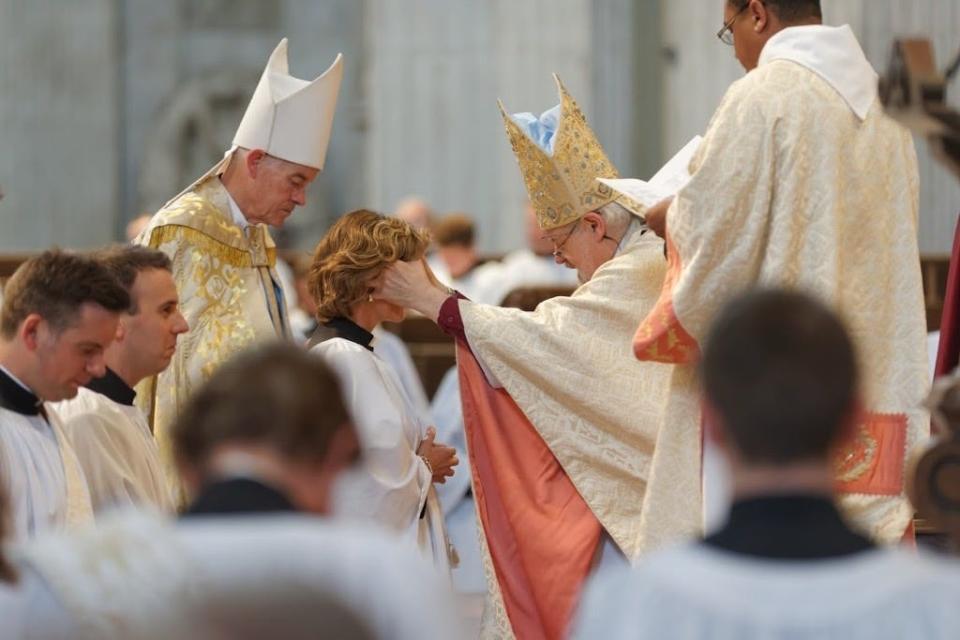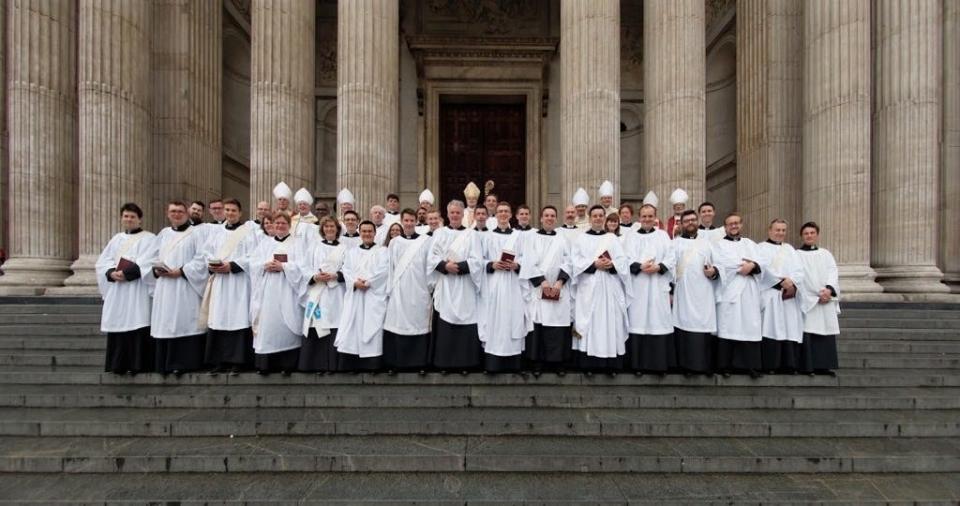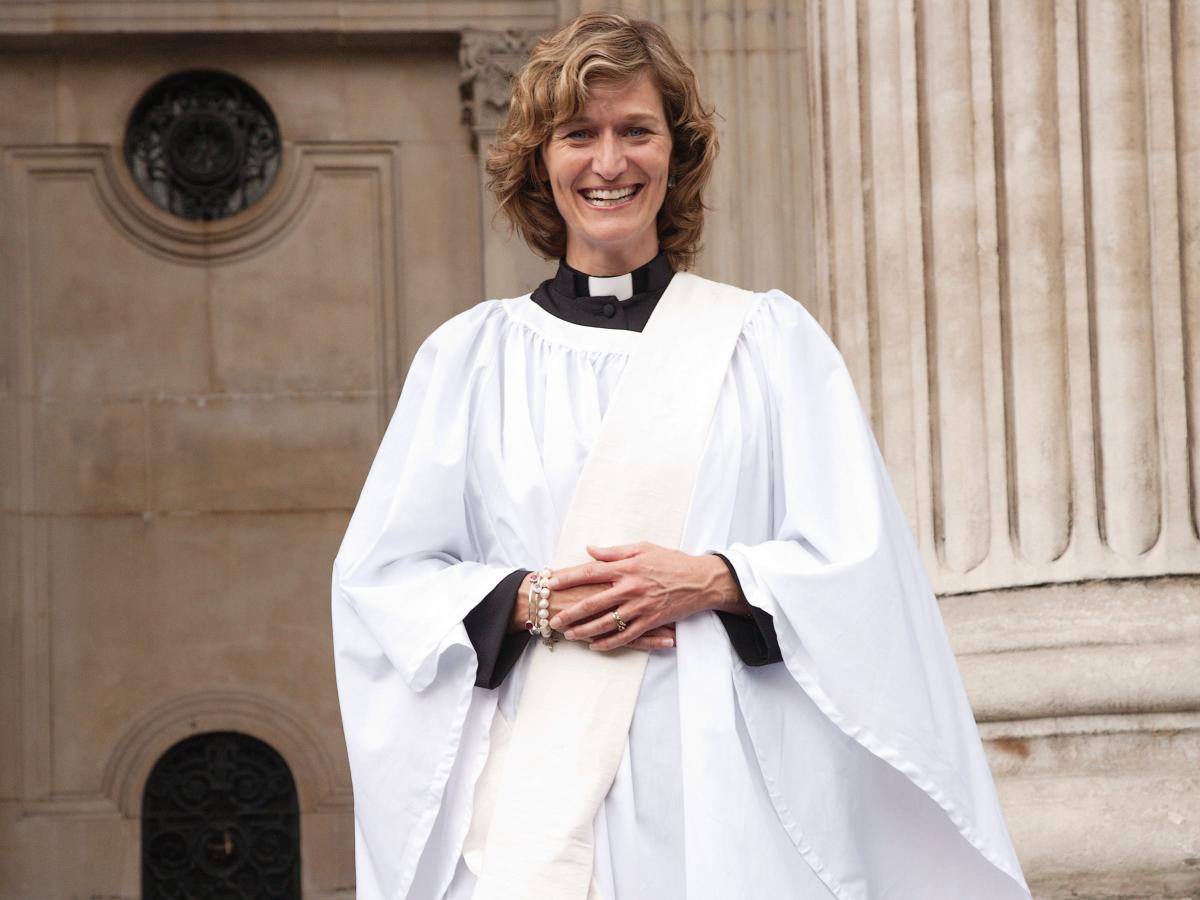-
Kristen Breuss, from the Midwest, worked at Goldman Sachs in New York and London for 20 years.
-
In 2009, she left to spend more time with her family and find a sense of purpose.
-
Breuss is now a pastor and enjoys the variety and flexibility of her new work life.
This as-told-to essay is based on a conversation with Kristin Breuss, a 45-year-old pastor based in London. The following has been edited for length and clarity.
I joined Goldman Sachs in 1990 as an investment banking analyst at the age of 22. Almost two decades later, I left to become a pastor.
My first two years at Goldman Sachs were ridiculously intense, and I was lucky to get a day off, including Sundays. But it really was a great place to be. I learned a lot, they treated me well, and invested a lot in me.
When I was at college, I did an internship with a politician in London and loved it. So in 1999, I pitched the idea of Goldman Sachs basing their global training for investment banking in London, and they said yes. My husband and I moved from New York to London shortly after, and 24 years later, we’re still here.
Every 18 months to two years, I found myself in a new role, from banking to marketing to HR. They allowed me to move abroad and cut down on my hours when I had kids, so there was never really any reason to leave.
I kept getting bigger and bigger jobs and in 2007, I got promoted to managing director, which was kind of a big deal in the HR space.
As a girl from the Midwest who never went anywhere further than Michigan until I was 16, I loved having a global role and traveling around the world. I never thought I would experience what I now have.
As surprising as it may sound now, I truly believed the work I was doing was making the world a better place. I loved opening new markets and making people better managers. It was classic capitalist thinking.

In 2008 I started to lose my sense of purpose
For a long time, the job, alongside my marriage and raising my three kids, gave me a sense of purpose. But around 2008, that started to change.
Being in that role was a lot of fun but I started to feel like it wasn’t what I was supposed to be doing. It wasn’t fulfilling me day-to-day. I went on vacation with my family over Christmas that year and felt like I had been missing out on time with them, too.
By 2009 I started feeling like I was just making rich people richer. And while I don’t think that’s the full picture, I did feel like a lot of my day was spent talking to people who were complaining about how much more money they should be making. Suddenly, I felt like I had been climbing a ladder that was leaning against the wrong wall.
Much to everybody’s surprise, I resigned four months later. When I told my boss I wanted to spend more time with my family she said, “but we’re your family.” That really confirmed to me that I’d made the right decision. I realized that the job had become tied to my identity and I didn’t want to be somebody who needed a title and status to feel good.
Adjusting to a new life after 20 years at Goldman Sachs was hard
When I left I didn’t know what I wanted to do with my life and adjusting was a struggle emotionally. Almost 20 years of being constantly busy meant I’d pushed down unprocessed feelings that were now coming up.
After a few months I started working with a corporate coach, who ended up being a godsend. I did a vocational Myers-Briggs test with her and one of the results was working in a religious institution. It really stood out to me because I was already getting more involved in my church.
I had always believed in God and been a member of a church. I was wrestling with some theological questions at the time, namely around LQBTQ+ issues and the role of women in the church, which led me to study at a theological college.
I started to preach more, do bible studies, and get involved in community festivals and social work like volunteering at a homeless shelter. And I really thought, “Okay, except for the fact that I feel completely unqualified and unworthy I really would like to do this professionally.”
So I took the plunge and in June 2014, at the age of 45, got ordained at St. Paul’s Cathedral in London — just down the street from my old office.


Life as a pastor taught me the importance of rest
Stepping away from corporate life and leaning into my faith over these last ten years has taught me the importance of rest.
At Goldman Sachs, you had to get back to someone within 24 hours, that was the rule. And so this idea of rest, it was like, “Are you kidding?” You might lose your job if you rest.
After the first year or so of my new life, I learned to set boundaries at work, which has enabled me to manage work around my family and have time for myself. It’s taught me that we’re valued in our being, not in our doing. My identity isn’t tied to what I do.
Currently, I’m an associate vicar at St Mary’s London church in central London. My weeks are filled with variety, which suits me. I lead online prayer groups, I preach on Sundays, I attend events, and work at our food bank, among other things that I’m drawn to. I feel a lot of joy and a strong sense of purpose, particularly being so close to the pain and need in the world.


St Mary’s is a modern church that’s open to the LGBTQ+ community, which is important to me. One day I hope to lead a charismatic, inclusive church that’s more rock band than choir, but not at the expense of my personal values or identity.
I get paid very little, although financially, I’m in a fortunate position because my husband earns enough to support us both. But knowing that I’m not doing this for the money, I’m doing it for just a higher purpose, is really freeing. Overall I feel so good about my decision, and there’s no way I’d go back.
Read the original article on Business Insider
